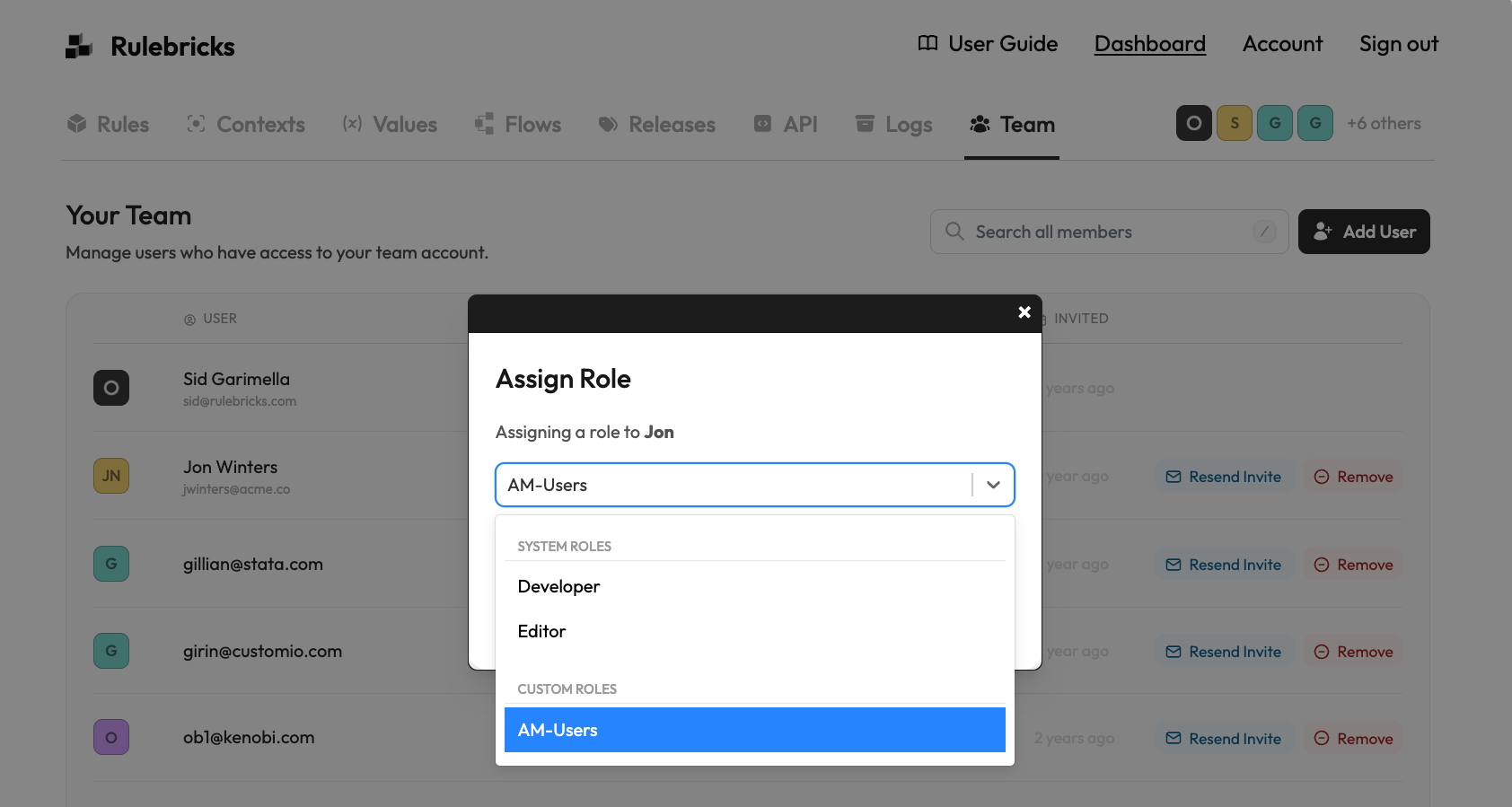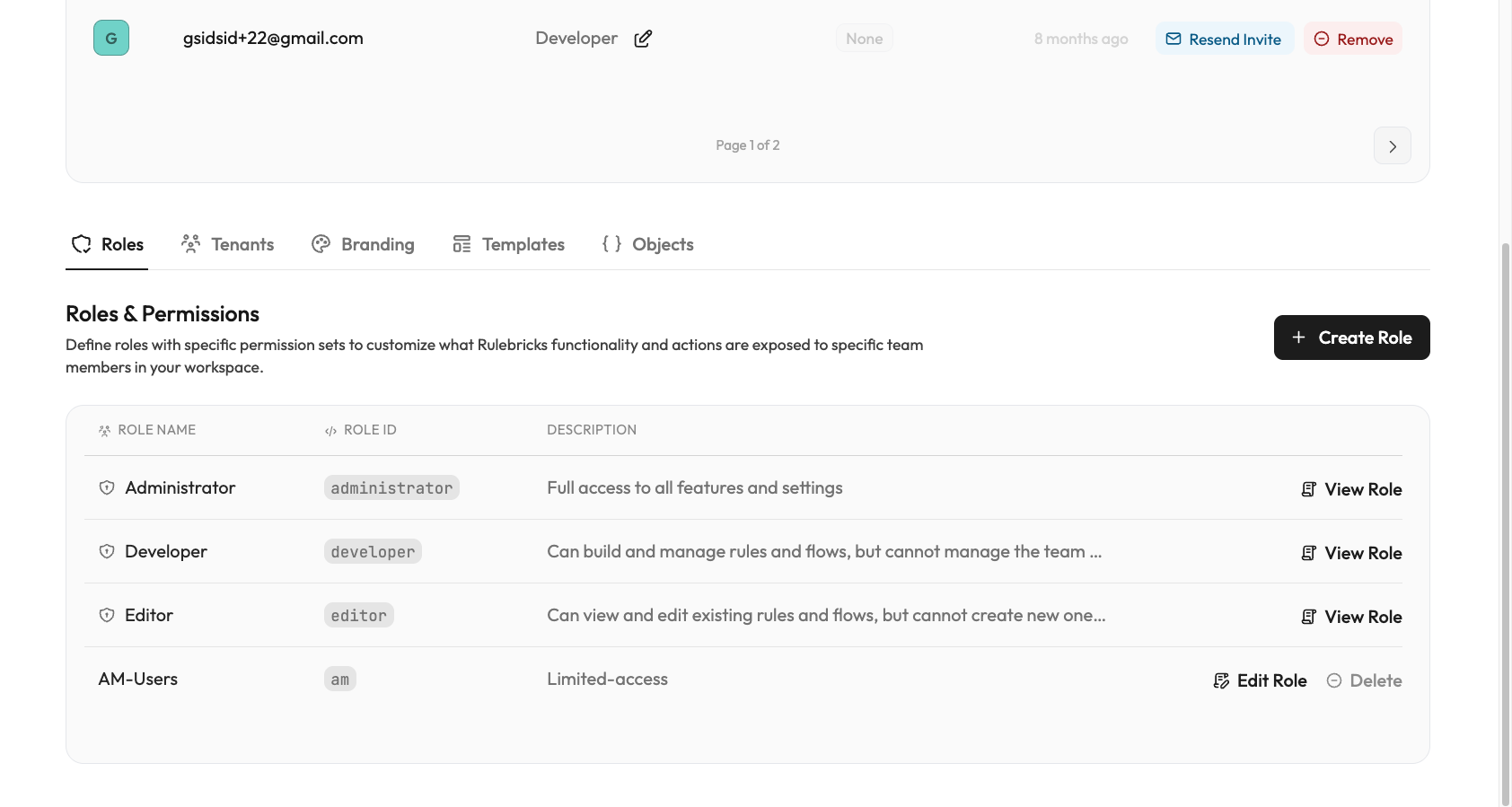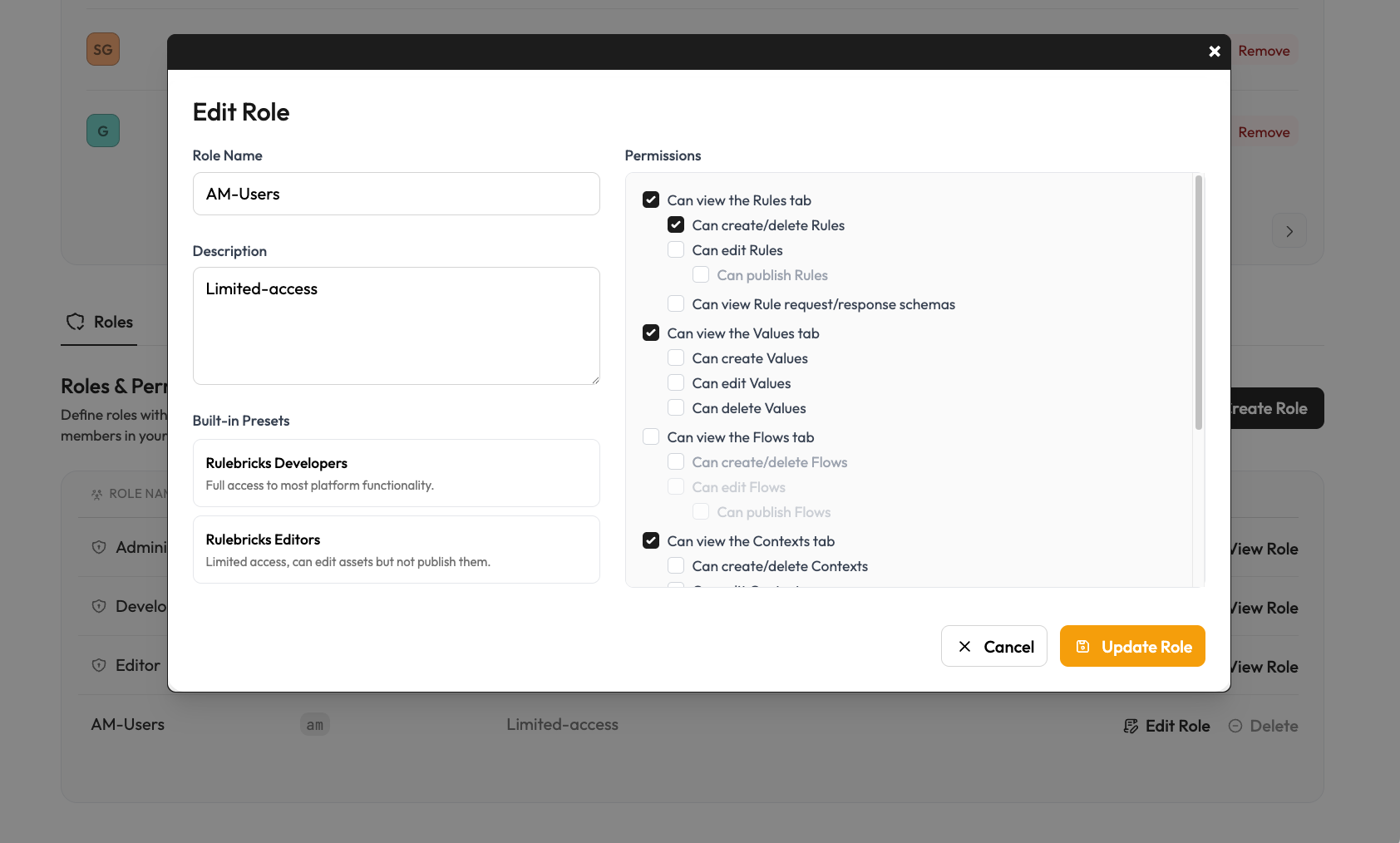Assigning Roles
Roles control what users can access and modify. Assign them from the Team tab by clicking the pencil icon next to any user's current role.

System Roles
Developer — Full access to rules, flows, API keys, logs, Dynamic Values, and settings. Cannot edit team membership or billing.
Editor — Can view and edit existing rules. Cannot create/delete rules, access API keys, logs, flows, or settings.
Administrator — Complete control including team management and billing. Reserved for the workspace owner.
Custom Roles
For granular control, create custom roles with exactly the permissions you need.
Create the role
Go to Team → Roles and click Create Custom Role.

Configure permissions
Select which capabilities this role should have:

Rules & Flows — View, edit, create, delete, publish
Data & Settings — API keys, logs, Dynamic Values, settings
Team — View members, invite members, manage roles
Save
Name it descriptively and save.
Custom roles combine with User Groups for precise scoping– roles control what Rulebricks functionality they can use, and user groups control what data they see.